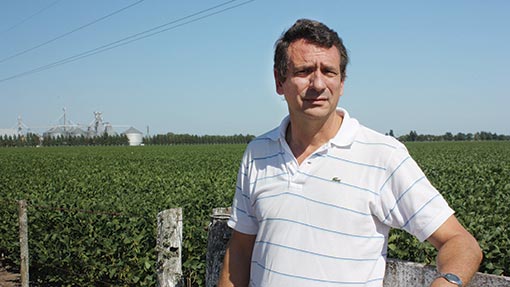Farmer Focus: Herbicide resistance adds to woes

Gross margins today indicate that maize is not profitable. In more remote regions of production, yields will need to be 70% higher than the average of the past six seasons to match production costs, considering the US$130/t (£80/t) on offer for the next harvest in April 2015.
Therefore, some producers have begun returning corn seed to the suppliers. But a fear of investment in the crop is not a problem unique to corn producers.
The government is determined to continue to add more risk to production with its 34% export retention tax, which reduces our crop price compared with the already depressed world price.
In the past ten years, the increase in the number and distribution of weeds resistant or tolerant to herbicides, particularly glyphosate with its very widespread use in no-till systems, has been significant, causing yield losses in agricultural production.
Besides causing decreased yields and increased costs for cultural control or alternative chemistry of these weeds, in some circumstances, we need to change production systems from no-till and change cropping to overcome the presence of particular weeds.
The management of these difficult weed species has resulted in an increase in the use of herbicides and in some cases, of the applied dose, which in turn results in a significant increase in costs of between US$25-100/ha (£15-60/ha).
In production areas, where I find difficult weeds are affecting the gross margin of the summer crops very significantly, net margins are now negative with the low grain prices. This indicates that there are situations where it is economically unfeasible to grow a particular crop – and land will be left fallow this season.
As a result, practices such as cleaning machines before entering the field, specific control of in-field weeds patches, ongoing monitoring and cultural practices, including use of cover crops, crop rotation, rotation of herbicide modes of action, proper dosage and quality of implementation – are all increasingly part of a more complex solution.
Federico Rolle farms 2,250ha of rented arable land in the Pampa area of Argentina. He grows soya beans, sorghum, maize and wheat using no-till techniques and GM crops. He has a part-time role helping Brown & Co in the region.
